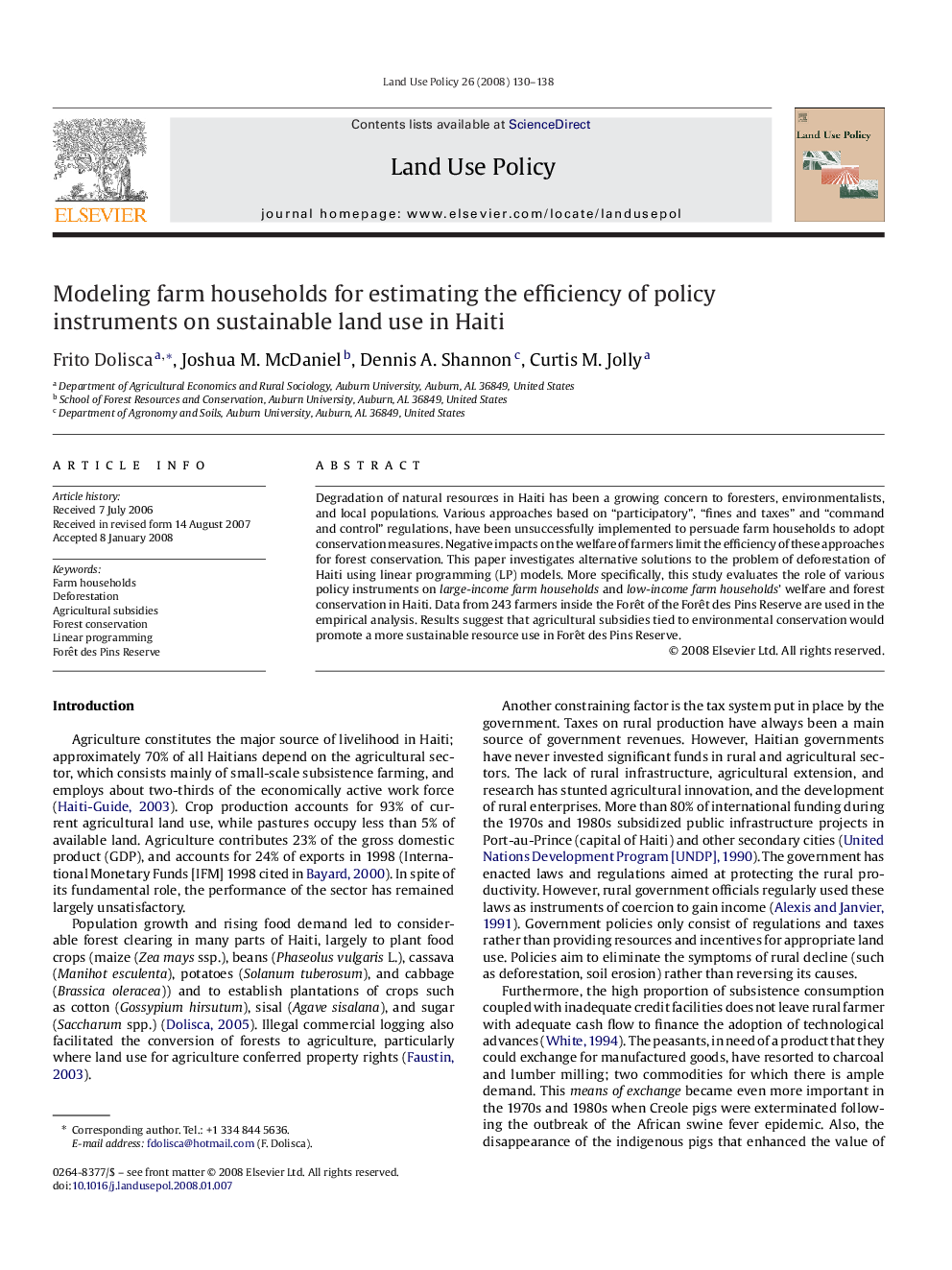| Article ID | Journal | Published Year | Pages | File Type |
|---|---|---|---|---|
| 93669 | Land Use Policy | 2009 | 9 Pages |
Degradation of natural resources in Haiti has been a growing concern to foresters, environmentalists, and local populations. Various approaches based on “participatory”, “fines and taxes” and “command and control” regulations, have been unsuccessfully implemented to persuade farm households to adopt conservation measures. Negative impacts on the welfare of farmers limit the efficiency of these approaches for forest conservation. This paper investigates alternative solutions to the problem of deforestation of Haiti using linear programming (LP) models. More specifically, this study evaluates the role of various policy instruments on large-income farm households and low-income farm households’ welfare and forest conservation in Haiti. Data from 243 farmers inside the Forêt of the Forêt des Pins Reserve are used in the empirical analysis. Results suggest that agricultural subsidies tied to environmental conservation would promote a more sustainable resource use in Forêt des Pins Reserve.
